All You Want to Know about BJIFF
The 12th Beijing International Film Festival (BJIFF) is drawing to a close tomorrow night. We have seen five impressive highlights from various events, activities and forums in the past week.
Several VIPs of the head companies in the film industry turned the “Film Power Forum" into an exchange meeting of "the past decade”, summarizing the achievements and plans of their companies.
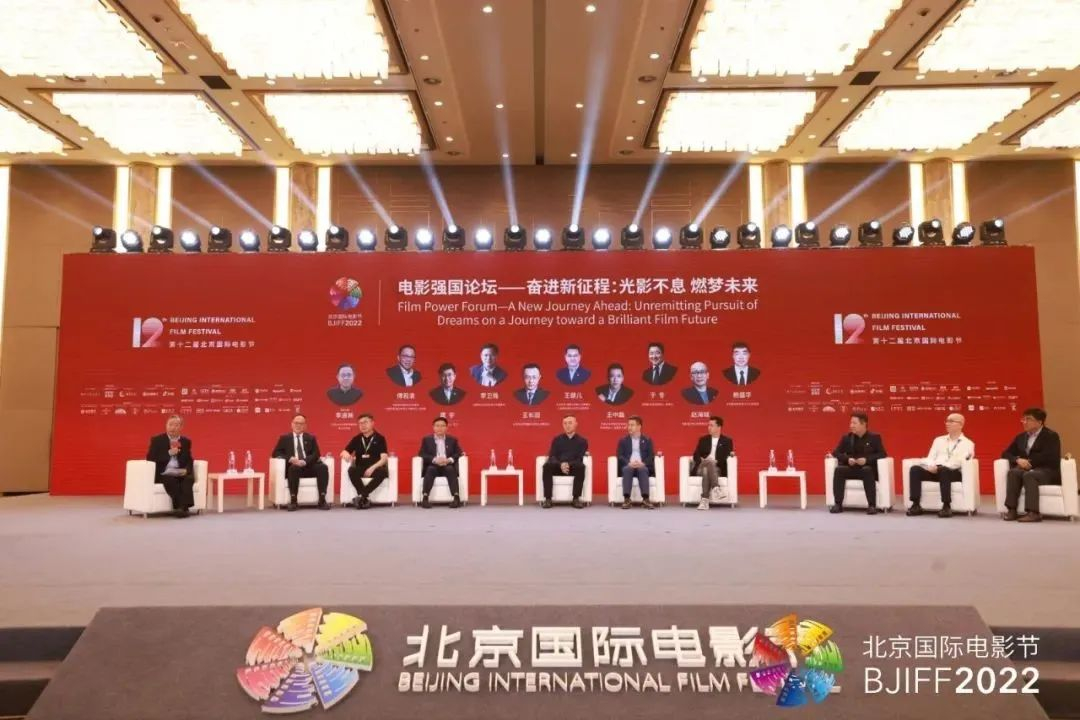
Sci-fi is going viral at the 12th BJIFF since it was frequently mentioned in various forums, and also titled in “Beijing · Future” as a topic for the young directors participating in “BJIFF TALENTS”.
In China’s pursuit of becoming a film power, film industrialization and technology have become hot topics. However, creators often keep a distance from the two topics in their speeches. Instead, they prefer to emphasize the care of films for people and the importance of stories.
Lan Xiaolong, a screenwriter, said at the “Film Power Forum—Exploration, Pursuit and Creation of ‘Peak’ Films", “I don't think films are industrial, because, if so, films will become commercial. I don't think films are artistic either. If so, films will be self-centered."
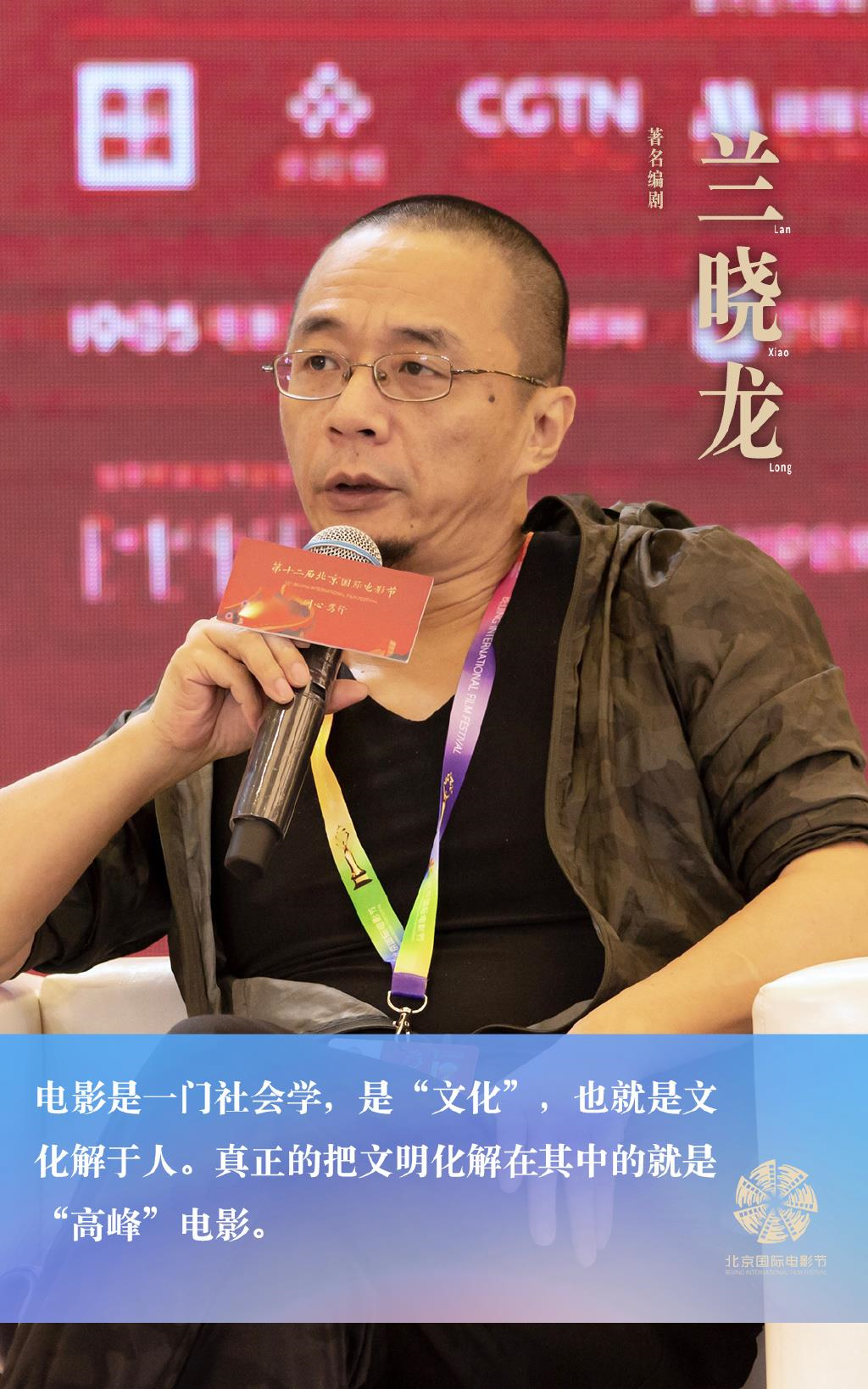
For the forums related to cinema films, the key is to grow stronger and create glories, while the keywords for the forums related to online films and dramas are set to improve quality, reduce quantity, lower costs and increase efficiency.
What moved us most was that, Li Xuejian, Jury President of Tiantan Award, was looking with concern at his son Li Gen who showed great passion on the stage at the Young Filmmakers Forum. Before Next Spring, directed by Li Gen, was nominated for Tiantan Award for the Best Film at the 11th BJIFF.
There is no better way for the inheritance of film spirit and culture from generation to generation. Besides, inheritance is the only and permanent theme of the BJIFF.
“Technology priority” for production and screening
Under the guidance of the long-term goal for a film power and the 14th Five-Year Plan for the Development of Chinese Films, promoting the high-quality development of China's film industry and building a film power have become the essential topics and industry missions for all the forums at BJIFF. However, in order to achieve these goals, the first problem that needs to be resolved is the stagnant growth of the industry.
Fu Ruoqing, Chairman of China Film Group Corporation, said that, two decades ago, Chinese films achieved a breakthrough of digitalization from nothing; 20 years later, China Film was the first to complete the construction of 100 digital film projection screens, launched the "high-level film" program integrating seven major film technologies, such as high frame rate, high brightness and high dynamic range, and created the advanced projection technology and system, which can provide the audience with more diversified experiences.
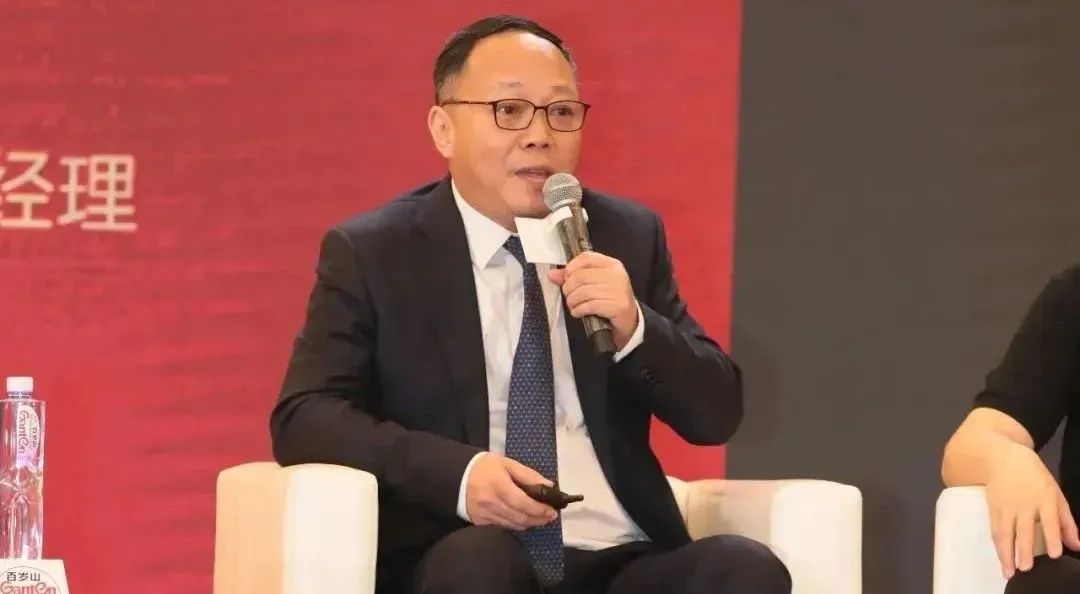
In fact, he aimed the breaking point for the recovery of China’s film market on the updating and iteration of projection technology. In other words, it took only a few years for COVID-19 to destroy the habit of Chinese audience watching films in the cinema, meaning that it is not possible to ask them back to cinemas after the epidemic simply with good works. It is necessary to improve the screening quality of cinemas and make the film the biggest audio-visual feast.
Gong Yu, CEO of iQIYI, also said that the challenge for cinemas from the past decade to the future is that many functions of cinemas were and will be replaced by simpler methods through technological innovation. Although they cannot be completely replaced for now, cinemas definitely need to meet higher demands in the future.
“Covering eyes and ears and stimulating human senses with virtual signals are theoretically better than audio-visual experience at cinemas. Technology has also an impact on the production end. Some films are already virtual shooting, and some high-quality game technologies are also applied to film shooting."
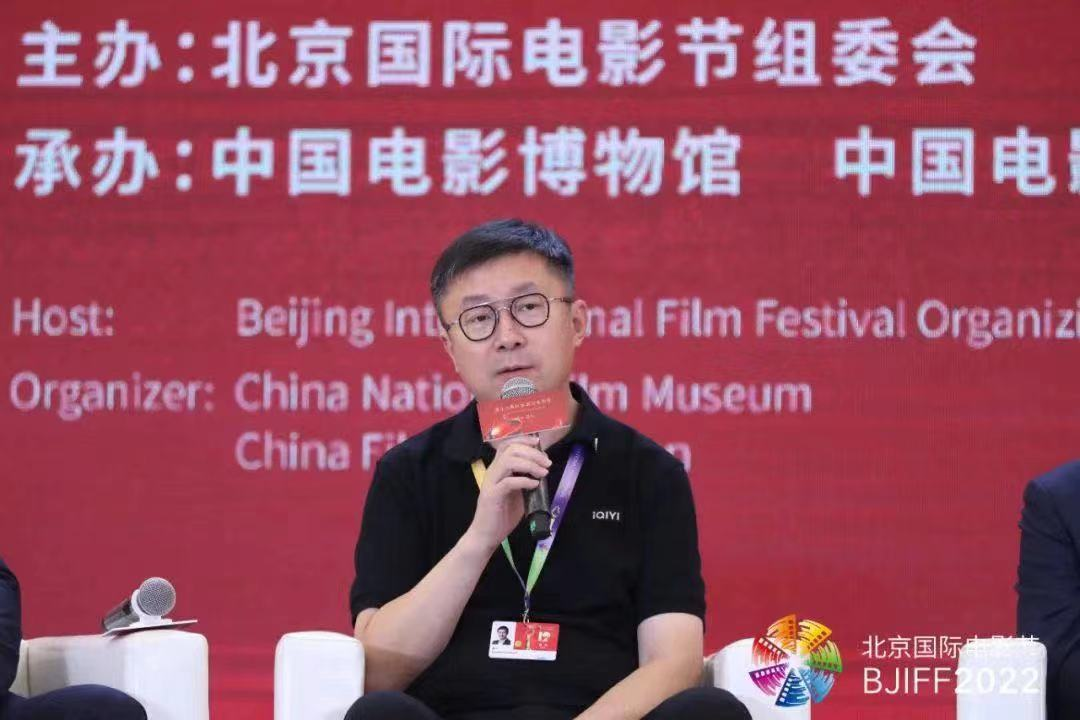
“In fact, if creating greater audio-visual experience is an important goal of China’s film industry in the future, iQIYI, as a technology-oriented Internet company, does have certain advantages.”
Wang Changtian, Chairman of Beijing Enlight Media Co., Ltd., also mentioned the demand for technical iteration at the production end. Enlight Media aims to create a "universe of Chinese myths". Although the core is creativity, technology is also an essential assurance. Especially for animated films, virtual production and special effects require advanced technologies.

However, he also insisted that content is still more important than technology. For instance, the "universe of Chinese myths" includes all the legends and cultural works on Chinese myths and rebuilds the history of the myths. If we are not respectful and pious towards Chinese traditional culture, such a huge project cannot be completed.
Wang Zhonglei, CEO of Huayi Brothers Media Corp., mentioned the relationship between metaverse and film and television. He believed that the collision between metaverse and film and television may have impacts at both front- and back ends: It may change the viewing mode of consumers, and also the mode of film shooting.
He expected that Huayi Brothers will produce two high-quality films with at least 80% completed by virtual shooting technology in the next two years.

In fact, it can be seen from their speeches that with the development of China’s film industrialization, film production companies are no longer simple content producers, but have to pay equal attention to content and technology. Even if the content is given priority, it is necessary to develop technologies for film shooting or at the consumption end, which may be the most important trend in the future.
Three aspects for content creation
New mainstream, reality, and sci-fi.
These words have been frequently mentioned at various forums of the 12th BJIFF. In the eyes of filmmakers, they represent the focus of the content creation for Chinese films in the next few years.
Yang Chenghu, Deputy Dean of the School of Arts & Communication, Beijing Normal University, said at the Young Filmmakers Forum that the success of new mainstream films in China proved that China’s film industry has finally found a way for parallel development and integration with the global film industry.
He summarized the new mainstream films into three dimensions: Chinese stories, Chinese spirit and the strength of the Chinese people to strive for a better life.
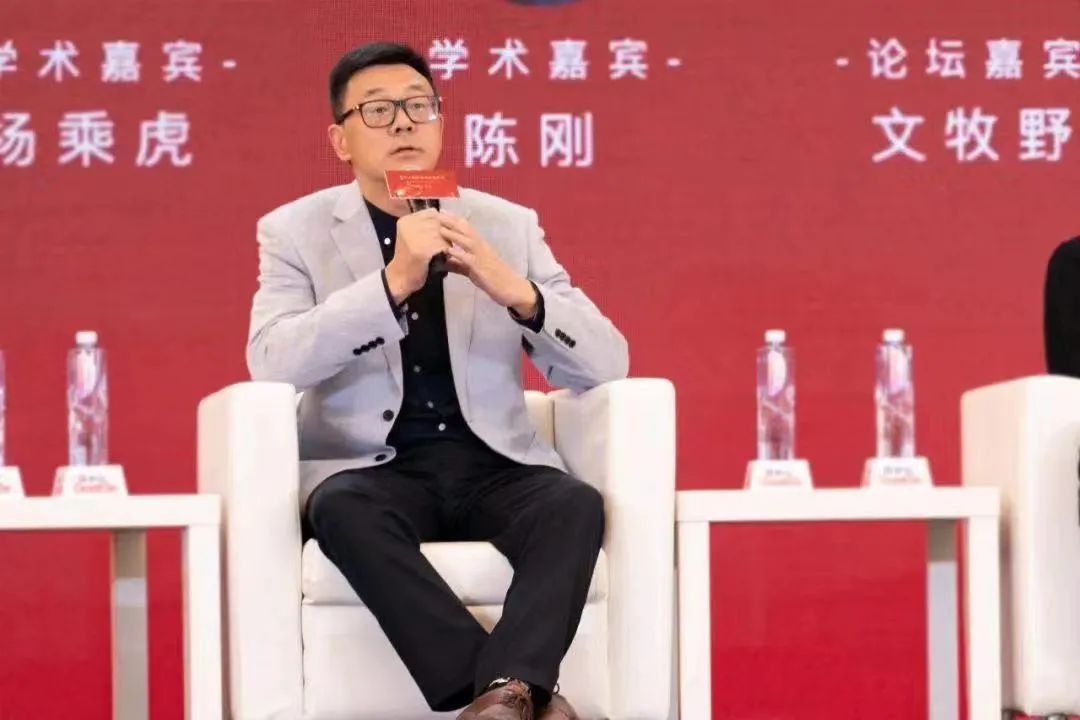
From the market perspective, the advancement from "the main melody film" to "the new mainstream film" is a major breakthrough for China’s film industry in the past decade. From The Taking of Tiger Mountain to Operation Red Sea, from My People, My Country to The Battle at Lake Changjin, it shows that concept of "care for the reality, theme of the times, will of the country and feelings of the people" is the key to win at box office.
In addition, themes about the caring for ordinary people's emotions and the discussions of the meaning of life are never out of date. As long as we know how to amaze or move the audience, we would successfully know what to do next.
Director Wen Muye said at the Young Filmmakers Forum that filmmaking is like farming, for which seeds should be planted and the fertilizer should be applied. He shared the shooting experience of Dying to Survive: The production team did a lot of field investigations in the early stage, and spent four months visiting patients, doctors and medical representatives. The investigation materials were applied to the story, which helped build the nature of characters and strike a chord among audience.

Films with realistic themes respond to the public concerns, while sci-fi films aim to the imaginations for the future. Journey to the West, directed by Kong Dashan, was awarded the " Most Popular Feature Picture" in the 12th BJIFF Forward Future section, and the actor Yang Haoyu won the "Most Popular Actor".
In addition to the sci-fi films under market concern, producer Gong Ge’er also said at the Film Power Forum that sci-fi films are a specific type that is easier to apply new technologies and process innovation.
Besides the market, and production companies also need sci-fi films for technology development. To some extent, sci-fi films become a new upsurge, which is the result of the joint efforts across the board.

It is worth mentioning that Wandering Earth II, a sequel to Wandering Earth that “opens the door of Chinese sci-fi films", had its first trailer released today. The film will be screened on New Year's Day in 2023.
It is unknown how long the influence of the new mainstream films will last. It is an obvious trend that the volume of films with realistic themes is decreasing. However, the sci-fi films, from Wandering Earth to Moon Man and then the anticipated Journey to the West, show great market potential. Undoubtedly, sci-fi films will be the biggest treasure of China’s film market in the future.
[By/Xu Xinqiang]
